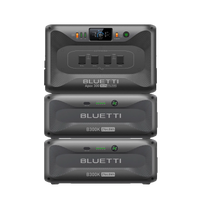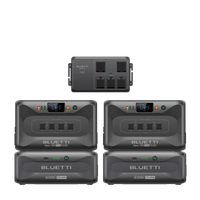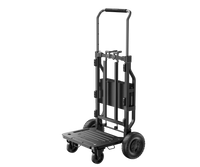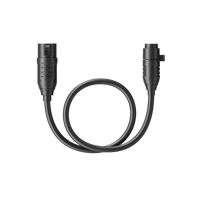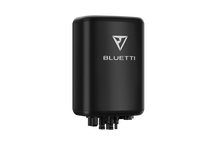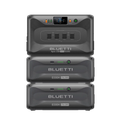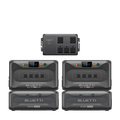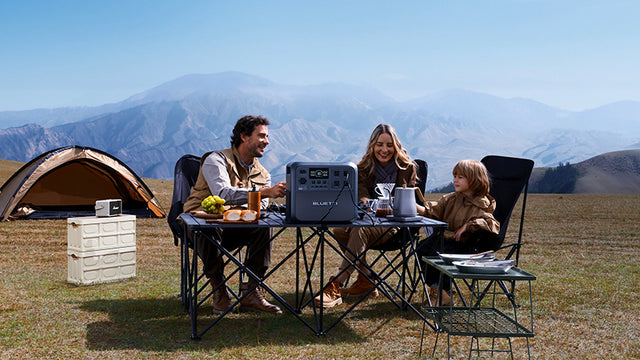Your cart is empty
Shop our productsIf you are looking to take some time to go off the grid and go camping, the last thing you want to worry about is your electric supply. You do not want to burden yourself with how many hours of sunlight you will have, what the weather forecast is, or worse still, how long your batteries will last.
You just want to relax, enjoy yourself and be at one with nature. One thing you should be on top of is having a portable power source when camping, so let’s see how solar vs. gas generators pan out.
This quick guide will divide and compare the two most common fuel types powering small portable generators: gas vs solar generator. After you finish reading, the choice will be more evident which type of generator better suits your needs and lifestyle
Solar Generators vs. Gas Generators
The apparent difference between solar generators vs gas generators is that the former runs on solar power, while the latter runs on gas. However, there are many other factors to consider when comparing these two types of power sources. Let us take a look at some of these factors that can help you decide between solar powered generator vs gas:
Cost
Gas-powered generators are much more expensive than solar generators. They also require frequent maintenance and repair because they are high-tech devices with many moving parts that can break down over time. This makes them a poor choice for campers who want to save money while enjoying outdoor activities without worrying about running out of fuel or getting stranded in the middle of nowhere because their generator has broken down again.
Solar power is much cheaper than gas power because it requires no special equipment or maintenance compared to its counterpart. You can install a solar panel on your RV or motorhome and use it to power your entire vehicle without needing additional equipment or paying for expensive repairs or replacements over time.
Safety
Gas-powered generators are indeed much more powerful than solar generators. But the fact remains that they create carbon as a byproduct, making them unsuitable for use in campsite areas where many people or children may come into contact with them. The fumes produced by some models can even trigger asthma attacks or other respiratory problems in those who have sensitive respiratory systems.
The best way to avoid these dangers is to choose solar power over gas power. Solar generators produce no toxic fumes and are safe to use even around children and pets because they have no moving parts that could cause injury if handled improperly or accidentally touched.
Portability
Gas-powered generators are usually large and heavy, making them the most convenient thing to lug around on camping trips or other outdoor activities. They also require fuel, which must be transported separately from the generator itself so that you do not need to worry about running out of fuel while you are out camping or hiking. Also, if you put too much weight on the back of your vehicle, then it might make it harder for your vehicle to drive up hills and turn around in general.
Solar generators are a much more convenient option than gas-powered ones because they charge with the sun, so you do not have to worry about bringing extra heavy gas containers. Plus, solar generators are much smaller than gas-powered models and can fit easily into your backpack or car trunk so that you can take them wherever you go. This makes them ideal for people who like camping but do not want to carry heavy equipment with them all the time.
Noise Pollution

Solar generators are superior to gas-powered generators for many reasons, one of which is the noise created by gas-powered generators. It is highly recommended that you use a solar generator rather than a generator that is powered by gas if you are going to be camping in an area where there are a lot of people or if you want to have some peace and quiet while you are away from home on your camping vacation.
Some people find the loud buzzing sound produced by generators fueled by gasoline to be somewhat bothersome, particularly if they are subjected to it for extended periods. People who are hypersensitive to noise pollution or who struggle to sleep may find that this makes it difficult to get or stay asleep since it makes it more likely that they will be awake during the night.
Solar generators, on the other hand, only produce minimal amounts of noise when they are in use. They will only make as much noise as is necessary for them to do their job effectively, which means that they will not disrupt people in the campsite area who may be trying to sleep during the night hours since they will only make as much noise as is necessary for them to do their job effectively.
Easy Operation
A gas-powered generator is an engine that needs to be primed, filled with gasoline or diesel fuel, and started before it can be used. Not only will this take a significant amount of time, but it also poses the risk of injury and necessitates a thorough understanding of the internal dynamics of these engines to start them without setting off an explosion or a fire.
Solar generators are much simpler because they do not require any priming or starting process before they can be used. They are ready for use as soon as they are connected to an outlet and switched on; there is no other action plan. There is no need for fuel refills or maintenance checks before using a solar generator since the sun will provide all the energy needed to keep it running smoothly throughout your trip.
Efficiency
A gas-powered generator can produce up to 1000 watts of power, but it takes time for the engine to warm up before it reaches its total capacity. A solar generator produces almost no heat, so you do not need to worry about overheating when using it. This means that you will not have to wait for hours before you can use your device.
You also do not have to worry about draining your battery if you want to charge your phone or laptop while on the go. The solar panel uses energy from the sun instead of your car's battery, so you will never run out of power while on an adventure away from home.
Maintenance

Maintenance is one of the biggest challenges faced by campers who use gas-powered generators. The first and most important thing to be done is routine maintenance on these devices. This will guarantee they continue to be in good working condition and will not stop functioning when you need them the most.
This entails keeping an eye on things like oil and gasoline levels and ensuring that any moving components have been adequately lubricated so that they do not overheat or harm themselves. In addition, this necessitates ensuring that any moving parts have been properly lubricated. This may be time-consuming and messy, mainly if you have never used a generator before and do not know how to take one apart or put it back together securely. If this is the case, you should probably avoid doing it.
The good news is that solar generators require practically no maintenance at all. You do not need to be concerned about disassembling them, cleaning them, or reassembling them afterward. Instead, all you have to do to enjoy your camping trip without worrying about running out of power is get your batteries recharged every few days or so, utilizing the energy provided by the sun.
Lifespan
A very frequently asked question that people ask is, "How many years will a solar generator last?"
The lifespan of solar generators is much longer than that of gas generators. A gas generator will only last five years before it malfunctions or stops working. On the other hand, the lifespan of most solar generators is about 20 years or more, depending on how well you take care of them. This means that your investment will last much longer if you choose solar generators instead of gas ones.
Weather Resistance
During a power outage, if you want to use a generator to power your house, investing in a model powered by solar energy may be worthwhile. Because gas-powered generators cannot work without sufficient sunshine to charge their batteries, these generators cannot be utilized while it is snowing or pouring because the batteries would not be able to be set. Solar generators, on the other hand, are not dependent on the climate and can function well regardless of outdoor circumstances.
If you intend to go camping during the winter, solar generators are even more enticing because they will perform effectively regardless of the weather conditions you endure. You would not have to worry about the generator getting destroyed even if you had to use it in the middle of a blizzard or during a mighty downpour. Solar generators are not susceptible to malfunctioning even when it is windy outside since they do not have any moving parts that the force of the wind may harm.
Final Decision: Solar vs. Gas Generator
Still unable to decide which is better; gas generator or solar?
Here is your summarized answer to the propane generator vs. solar confusion that will help you decide which one to pick.
In terms of pure power output, gas generators can crank out more than solar generators in a short time. However, this is less than ideal if power is only needed for a few hours or at night. The increased size and weight of gas generators, combined with their need to be refilled, make them much less convenient for camping.
Moreover, solar generator kits are specifically designed for long-term use and are highly portable and efficient. Gas generators may appeal to those powering houses in temporary homes, especially in cases where gas and supplies are nearby or have been pre-purchased, but for camping or emergencies, it may be better to go with a solar generator as your first choice. All you have to do is remember to pack some tent pegs.
Once you decide between gas vs. solar generators, check out the advanced portable solar generators and other portable solar products available at Bluetti.
Shop Bluetti for all your solar needs!
Shop products from this article
Be the First to Know
You May Also Like

What Does a 30% Federal Solar Tax Credit Mean and How to Apply?
Governments around the world are offering programs that encourage homeowners to switch to solar energy. Among the most notable programs is the 30% Federal Solar Tax Credit. It reduces your...

Deadly Flooding Devastates U.S. South and Midwest — What You Need to Know















